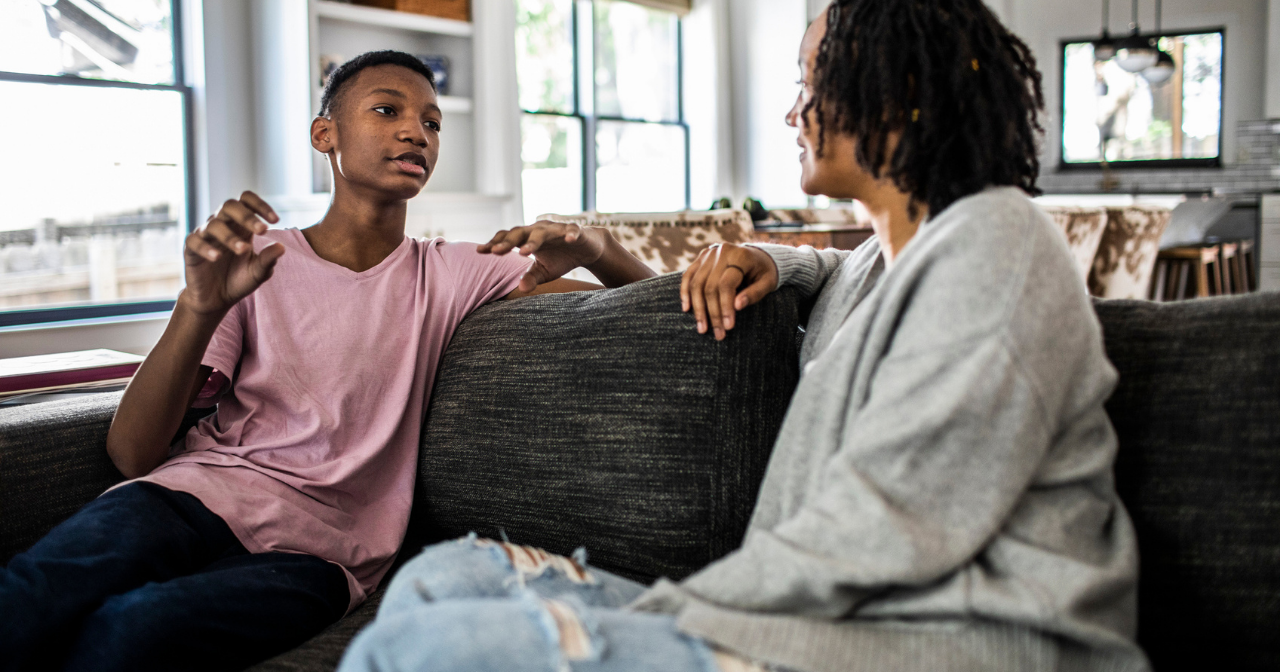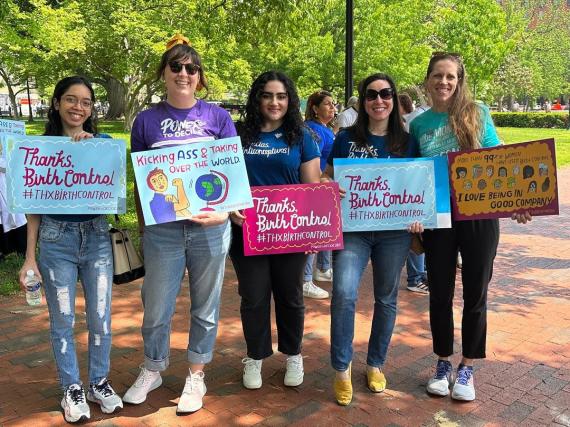Open Conversations & Active Listening
Ninety percent of adults agree that discussions about sex, love, and relationships positively influence youth to make informed decisions about these critical issues. Whether you’re a parent, guardian, educator, provider, or mentor, the young people in your life have a lot to learn from you. Starting inclusive conversations has the power to change everything.
Step 1: Breach the Subject
We know that research shows young people actually want to hear from their parents and other adults in their lives about important subjects such as sex, love, and how to navigate it all. You can start these conversations by relating to popular TV shows and movies, asking how they feel about current events, or by preparing thoughtful questions to prompt them to share their own experiences. It’s okay if you don’t have all the answers and don’t cover everything right away. What’s most important is opening the door and establishing yourself as a trusted resource.
Step 2: Ask Thoughtful Questions
Start a conversation with a broad question that lets your young person direct the discussion. Maybe they just want to keep things light and silly, or maybe something big is coming up that they want to share with you. By giving them space and putting them in charge you can strengthen your bond and show them that you're interested in all parts of their life. Talking it out also helps to make their future feel tangible. When young people feel empowered and supported in their efforts, they are more likely to achieve them. We do our best to help ease the way with resources such as conversation prompts, tips for talking, and meaningful stories from a variety of people’s own experiences.
Step 3: Practice Active Listening
Discussing topics like sex, relationships, and birth control could put your young person in a vulnerable spot. Giving them your undivided attention when they are sharing their personal experiences and opening up about curiosities is crucial to having an effective conversation. Show that you are listening by maintaining eye contact, nodding, and making sure that you don’t interrupt. Active listening shows your young person that you value their experiences, and you want to be an outlet for them. When it comes time for feedback and digging deeper, you will be able to help them to reflect, ask follow-up questions, and share your own experience.
Step 4: Leave the Door Open for Future Discussions
It's more important than ever to let the young people know that you will continue to support them throughout their journeys, no matter what. By serving as your young person’s point of support, you’re helping them build a foundation for healthy relationships for years to come! Send them off from any initial discussions by letting them know that they can come to you with their ongoing questions about sex, love, birth control, and everything in between. And by proactively beginning inclusive conversations parents and champions can establish themselves as a safe space for young people as they grow up, learn about themselves, and figure out what they want from their lives.
Every May, we celebrate the special relationship between young people and their champions with Talking Is Power Month. We’re counting on young adults, champions, and everyone in between to start talking. Conversations about sex, love, relationships, and future goals are key to preparing young people for the futures they envision for themselves.



